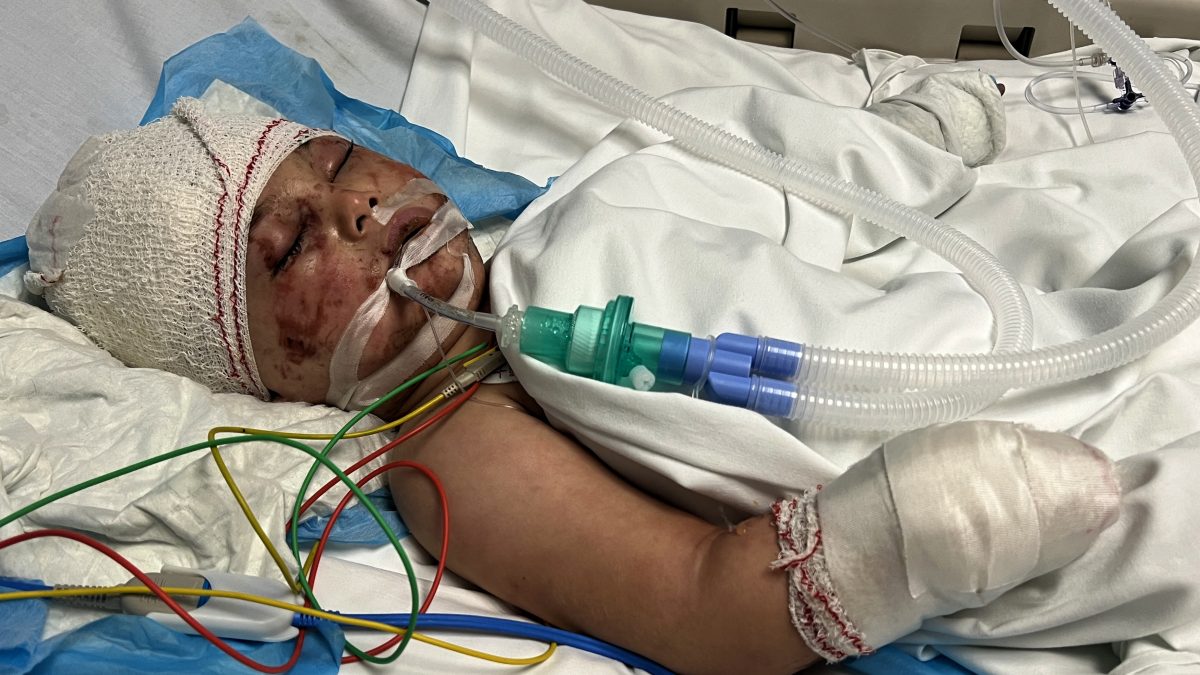Fourteen hours had passed after an Israeli strike on southern Lebanon. The attack had killed an entire family, barring one member: two-year-old Ali Khalifeh.
The toddler was found by alive by responders and pulled out from the rubble in a miracle rescue.
Ali, who was found severely injured, lies in a Sidon hospital bed far too big for his tiny frame, wrapped in bandages, with an amputated limb, and hooked to a respirator.
The strike on September 29, just days after Israel intensified its assault on Hezbollah positions, flattened an apartment complex in Sarafand, roughly nine miles south of Sidon. The attack killed 15 people, including Ali’s parents, sister and two grandmothers.
“Ali is the only survivor of his family,” said Hussein Khalifeh, Ali’s great uncle.
“Rescue workers had almost lost hope of finding anyone alive under the rubble,” said Hussein, 45, who stayed at the hospital in Sidon where Ali was receiving care.
But then “Ali appeared among debris in the shovel of the bulldozer, after we all thought he had died,” he said.
“He emerged from the rubble, barely breathing, after 14 hours.”
Israel’s intensifying onslaught in Lebanon
The latest escalation follows nearly a year of sporadic cross-border fire between Israel and Hezbollah. Since late September, Israel has expanded its air campaign, resulting in more than 2,600 deaths across Lebanon, according to the Lebanese Health Ministry.
Impact Shorts
More ShortsThe intensified conflict has led to significant civilian casualties and widespread displacement.
On September 23, Israeli airstrikes killed nearly 500 people and injured over 1,500 in a single day, marking one of the deadliest days in Lebanon in years.
The United Nations has expressed deep concern over the escalating violence, urging all parties to exercise restraint and protect civilians.
Humanitarian organisations report that essential services have been severely disrupted, and there is an urgent need for medical supplies and support for the displaced populations.
With inputs from AFP
)